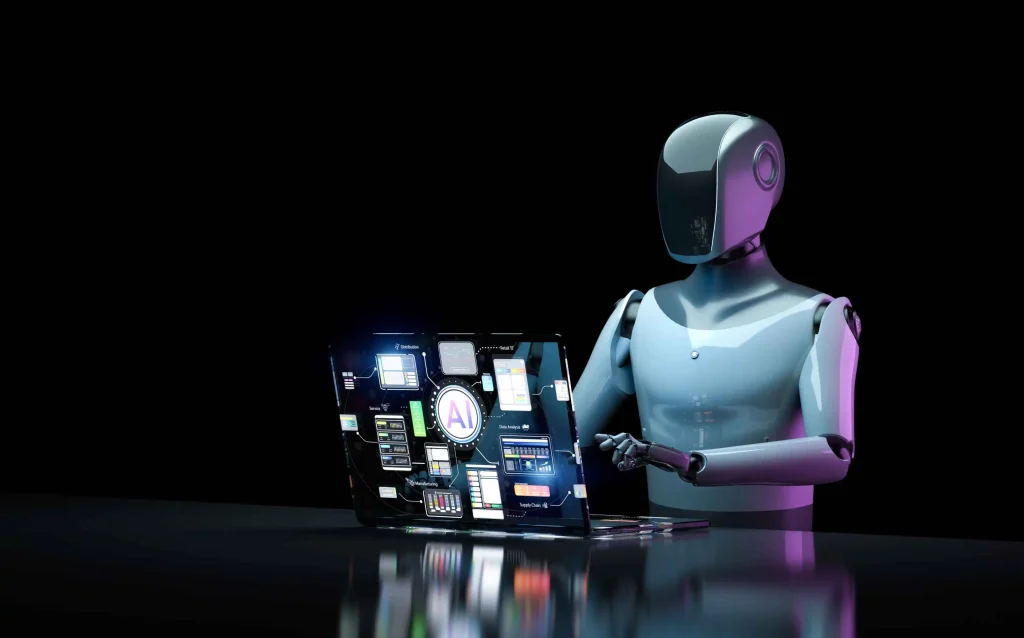Posted by Keyss
How AI Is Transforming Software Development: From Coding Assistants to Autonomous DevOps
In 2025, the software industry is undergoing a profound evolution. Artificial Intelligence (AI) is no longer just a supporting tool — it’s a core driver of innovation throughout the development lifecycle.
From writing clean code and detecting bugs to automating deployment and monitoring, AI is transforming software development into a faster, smarter, and more autonomous process.
This shift marks the beginning of a new era — one where developers work hand-in-hand with intelligent systems that code, test, optimize, and deploy applications in real time.
The Growing Role of AI in Modern Software Engineering
As businesses race to deliver digital products faster, traditional development methods can’t keep up. AI fills the gap by enhancing every stage of the SDLC (Software Development Lifecycle):
Planning: Predicts project complexity and effort.
Coding: Suggests or generates entire code blocks.
Testing: Automates unit and integration testing.
Deployment: Manages CI/CD pipelines intelligently.
Maintenance: Detects anomalies and self-heals systems.
According to Gartner, 70% of new enterprise applications will use AI-assisted development tools by 2026 — a sign of how deeply AI has embedded itself in modern engineering workflows.
AI Coding Assistants: The Developer’s New Co-Pilot
The first wave of AI adoption in software began with AI-powered coding assistants such as GitHub Copilot, Amazon CodeWhisperer, and Tabnine.
These tools analyze millions of open-source repositories and provide context-aware code suggestions in real time.
Benefits of AI Coding Assistants
Increased Productivity: Developers write up to 55% faster.
Fewer Errors: AI detects syntax issues before compilation.
Knowledge Sharing: Helps junior developers learn coding best practices.
Multi-Language Support: Works seamlessly across Python, Java, C#, and more.
In 2025, AI assistants aren’t just autocomplete tools — they’re intelligent partners capable of writing entire functions, generating APIs, and even suggesting architecture improvements.
Automated Testing and Quality Assurance
Testing remains one of the most time-consuming aspects of development. AI now revolutionizes this stage with predictive quality assurance and self-learning test generation.
How AI Improves Testing
Smart Test Generation: AI analyzes code changes to generate targeted test cases automatically.
Anomaly Detection: ML models flag unusual behavior or regressions in real time.
Defect Prediction: AI predicts where bugs are likely to appear based on historical data.
Continuous Testing: Integrated into CI/CD pipelines for round-the-clock validation.
Tools like Testim, Applitools, and Mabl use computer vision and reinforcement learning to detect visual and functional inconsistencies that humans might miss.
The result: better quality software, released faster and with fewer bugs.
AI-Powered DevOps: The Birth of Autonomous Systems
In 2025, DevOps has evolved into AIOps — the fusion of AI and operational automation.
AIOps platforms leverage machine learning, predictive analytics, and real-time telemetry to manage application performance and deployment.
Key Features of AI-Driven DevOps
Intelligent Monitoring: AI learns normal system behavior and detects anomalies instantly.
Predictive Maintenance: Prevents downtime by forecasting infrastructure failures.
Automated Deployment: Dynamically adjusts CI/CD pipelines based on code changes.
Root-Cause Analysis: AI pinpoints the exact cause of system errors.
The future of DevOps is autonomous — systems that self-deploy, self-monitor, and self-heal with minimal human intervention.
Generative AI and Low-Code/No-Code Synergy
Generative AI has democratized development by enabling non-technical users to build applications through natural-language prompts.
Platforms like Microsoft Power Apps, Appian, and Mendix now integrate generative models that convert business requirements into working prototypes.
For developers, this means:
Faster prototyping cycles.
Reduced dependency on manual coding.
Greater collaboration between IT and business teams.
By 2025, “citizen development” is mainstream — allowing organizations to innovate without relying solely on overburdened dev teams.
AI in Software Security (DevSecOps)
With rapid automation comes new risks. AI also plays a critical role in DevSecOps, integrating security throughout the pipeline.
AI Enhancements in Security
Static Code Analysis: Identifies vulnerabilities before deployment.
Threat Prediction: Uses ML to recognize patterns of potential exploits.
Runtime Protection: Detects and isolates active attacks in real time.
AI ensures that software isn’t just delivered fast — it’s secure by design.
Predictive Analytics in Project Management
AI doesn’t just help write code — it helps manage entire projects.
Predictive models analyze timelines, workloads, and resource allocation to:
Forecast delivery delays.
Identify developer bottlenecks.
Optimize sprint planning.
Tools like Atlassian Intelligence and Jira Assist integrate AI to recommend task priorities and automate backlog grooming — empowering project managers with real-time visibility and foresight.
Challenges in AI-Powered Development
While AI accelerates software creation, it introduces new challenges:
Bias in Training Data: Poor data can produce flawed outputs.
Explainability: AI decisions must be transparent and auditable.
Security Risks: AI-generated code can inadvertently introduce vulnerabilities.
Cultural Resistance: Teams must adapt to new workflows and responsibilities.
Enterprises must adopt AI governance frameworks to ensure safety, ethics, and reliability throughout the AI-driven SDLC.
The Future: Developers as AI Architects
AI won’t replace developers — it will elevate them.
Tomorrow’s engineers will act as AI architects, training models, refining outputs, and designing systems that continuously learn and improve.
Rather than writing every line of code, they’ll orchestrate human-AI collaboration to deliver software faster, safer, and smarter than ever before.
Conclusion: Code Smarter, Not Harder
Artificial Intelligence has redefined software development — turning repetitive, manual tasks into automated, intelligent processes.
From coding assistants to autonomous DevOps, the journey toward self-developing systems is well underway.
In 2025, success in software engineering depends on how effectively businesses integrate AI into their workflows.
Those who adapt will innovate faster, ship smarter, and lead the digital transformation era.

